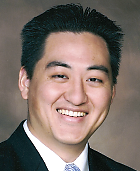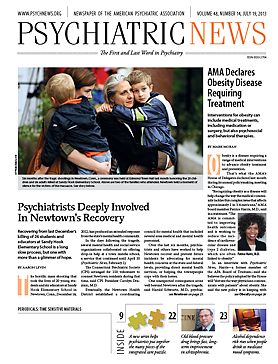“Happiness lies in the absorption in some vocation which satisfies the soul.”—Sir William Osler.
We never talk of souls any more. When Osler started the first residency program, he had the lives of clergy in mind. Physicians were to train like priests, and we still have priests in residency today. Osler believed that living in the hospital and seeing patients were good for the souls of residents. Now, at the end of my residency, I am humbled to have come this far in this honorable profession.
In residency, trainees learn to acquire the “soul” of psychiatry, the qualities that both sustain and define us. Like an Emersonian soul, it is imbued with a “wise silence” and a “common heart.” Training in psychiatry provides insights about human nature that go beyond treating mental disorders to treating individuals who have those disorders. “Psyche” is Greek for “soul,” a reminder for all psychiatrists, not just residents.
The Roman mythological story of Psyche and Cupid is quite inspirational. I’ve read it every year during residency as a reminder of the heights and depths to which human beings can aspire. Briefly, the god Cupid falls in love with a human, Psyche, and steals her away to his palace but does not reveal his identity or his appearance. Both fall madly in love, but he tells her that his identity must remain secret; otherwise, they cannot be together any more. Out of curiosity one night, she brings a lamp and sheds light onto her husband, revealing his true identity. Frightened, Cupid flees and leaves Psyche alone. She goes into a severe depression and attempts suicide three times by jumping into a river, each time saved by a spirit of the natural world. Psyche searches everywhere for her lover, even the Underworld, where she succumbs to a deep sleep. Cupid hears of this and flies to save her. With the help of Jupiter, Psyche becomes immortal and both marry in divine bliss.
The story of Psyche and Cupid teaches us that curiosity, for better or for worse, is a core feature of humanity. Psyche is also the only god who attempted suicide, and we learn from the story the importance of having relationships or staying connected. Over the years, I’ve learned to focus treatment plans on these two areas—that people are inherently curious and fundamentally social.
Finally, I’m struck by how creative mythological stories can be in resonating truths about the human spirit. Training to be a psychiatrist is truly a creative process. Few people really get that, and I think it is often overlooked. Residents are learning to create identities as psychiatrists and to help patients create narratives for themselves. Psychotherapy helps create meaning in lives where none was found or some was lost, essentially creating a personal mythology. The best paper I ever read was Otto Kernberg’s “Thirty Ways to Destroy the Creativity of Psychoanalytic Candidates.” It is full of sarcasm, but entirely humanistic. I think residency programs ought to make sure that trainees have plenty of opportunities for creative expression.
A patient recently asked me to pray for her soul. It was a 90-year-old woman with dementia who had fallen and broken her hip. After her operation, she thought she was in church and grasped my hands, saying in exuberant prosody, “Lord, bless our souls that we may exalt thee.” Then, to my surprise, she closed her eyes, puckered up her lips, and whispered to me, “Now, give me some sugar.” In my disbelief, I replied, “I’m sorry, ma’am, but I cannot kiss my patients.” I bet even Osler didn’t see that one coming.
My soul is content with ending residency, but my heart is excited when looking upon the future. A new era of psychiatry is just beginning. I am confident that the profession will continue to evolve for the better as we continue to help those in need. To my mentors and colleagues, thank you for imparting me with your wisdom and guidance all these years. To my patients, may you be filled with serenity in times to come. I also wish you the best, dear reader, and hope that you too are absorbed in a vocation that satisfies your soul. ■

